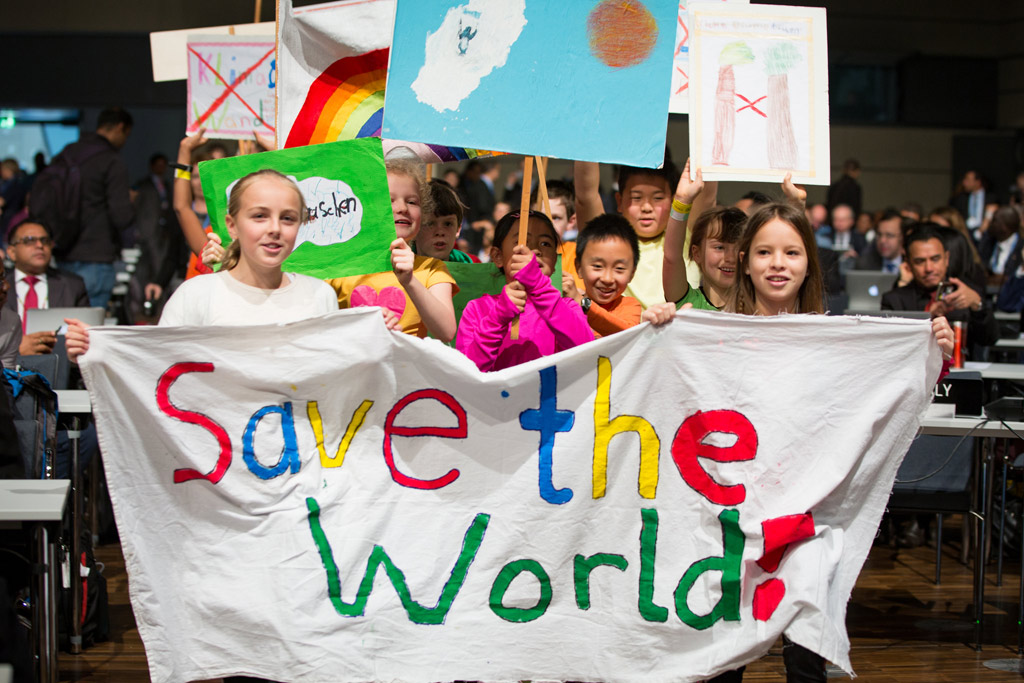The United Nations Climate Change Conference (COP23) wrapped up on Friday in Bonn, Germany, with delegations expressing a renewed sense of urgency and a need for greater ambition to tackle climate change.

Participants focused on how to maintain momentum two years after the adoption of the Paris Agreement on climate change in the context of the recent announcement by the United States of its decision to withdraw from the accord. At COP23, cities and local governments, including American cities and states, intensified their push to achieve the goals set out in Paris.
The Conference, which ran from 6 to 17 November, was chaired by Fiji, an island State particularly affected by the impacts of climate change. The Fiji Presidency announced an agreement on a Gender Action Plan, highlighting the role of women in climate action.
Apart from negotiations among Parties to the UN Framework Convention on Climate Change (UNFCCC), several new climate action initiatives, commitments and partnerships were announced by States and non-State actors in the areas of energy, water, agriculture, oceans and coastal areas, human settlements, transportation, industry, and forests. Climate finance and climate resilience were also at the center of the discussions at the conference.
More than 20 countries, including the Canada, Finland, France, Mexico, and the United Kingdom, launched a new global coal alliance aimed at achieving the rapid phase-out of existing traditional coal power and at placing a moratorium on any new traditional coal power stations without operational carbon capture and storage.
Businesses and other non-government partners have in turn made commitments to focus on powering their operations without coal.
The 19 Member countries of the ‘Biofuture Platform,’ including Brazil, China, Egypt, France, India, Morocco, Mozambique, also announced on Thursday formal agreement on the development of targets for biofuels and to construct an action plan to achieve them.
“Sustainable biofuels can provide solutions to the energy transport nexus. This partnership offers us that chance,”said Rachel Kyte, Special Representative of the UN Secretary-General and CEO, Sustainable Energy for All (SE4All).
Among other initiatives announced during the Conference, a global initiative was launched Tuesday with the aim of providing insurance to hundreds of millions of vulnerable people by 2020 and to increase the resilience of developing countries against the impacts of climate change. The ‘InsuResilience’ Global Partnership is a major scaling-up of an initiative started by the G7 in 2015 under the German Presidency.
The Conference took place one year after the entry into force of the Paris Agreement. The Agreement, which was adopted by the 196 Parties to the UNFCCC in December 2015, calls on countries to combat climate change by limiting the rise of global temperature below 2 degrees Celsius and strive not to exceed 1.5 degrees Celsius. Today, 170 Parties have ratified the treaty.
The Conference, which was attended by some 27.000, took place in a sobering context of alarming scientific reports of climatic changes. A week before the opening of the Conference, the World Meteorological Organization (WMO) announced that the levels of carbon dioxide (CO2) in the atmosphere surged at “record-breaking speed” to new highs in 2016.
COP23 will be followed by a series of summits and conferences on climate change which are scheduled ahead of the UN Climate Summit in September 2019, including the ‘One Planet summit’ to be convened by France next month and focusing on financing, a gathering in California, bringing together non-State actors, and the COP24 in Katowice, Poland, in December 2018. Brazil has offered to host COP25 in 2019.
Source
United Nations News Centre, press release, 2017-11-17.
Supplier
Sustainable Energy for All (SE4ALL)
United Nations (UN)
United Nations Framework Convention on Climate Change (UNFCCC)
Share
Renewable Carbon News – Daily Newsletter
Subscribe to our daily email newsletter – the world's leading newsletter on renewable materials and chemicals










